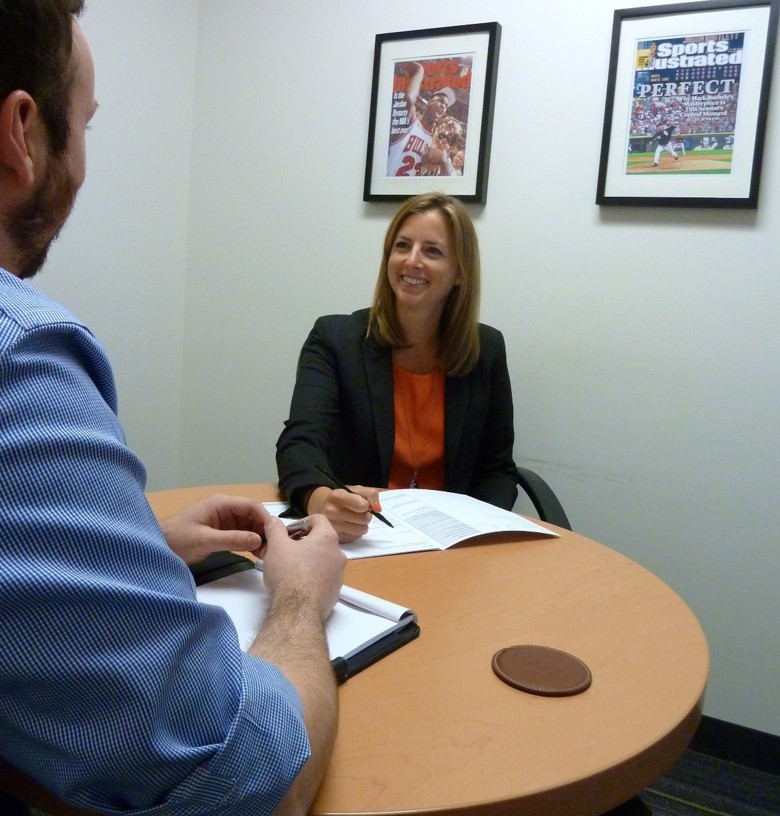In 2010, Basecamp founder & CEO Jason Fried presented a TED Talk called “Why work doesn’t happen at work.” During his talk, Fried argued employees don’t get any work done when they’re actually in the office. Instead, he said most people do their best work after hours, on the weekends, while commuting, or at home.
“You don’t have a work day anymore,” Fried said, “You have work moments. It’s like the front door of the office is like a Cuisinart, and you walk in and your day is shredded to bits.”
Fried criticized managers and meetings – what he calls the M&M’s – for interrupting workers. He proposes instead that companies should cancel their meetings, adopt emailing and instant messaging instead of face-to-face communication, and implement No-Talk Thursdays.
Employees should be able to work wherever and whenever they’re going to be most productive, and they should be able to work quietly and without interruption. Fried’s approach to the ideal office is radically different than the norm today, but it may not be for everyone.
There are two sides to every coin, and at LaSalle Network, we fall on the other side. Here are 5 reasons why:
1. Not everyone works the same way
Jason Fried’s method probably works really well for people who work just like Fried does. But that doesn’t mean it’s the ideal method for everyone. Not everybody is productive outside the office and alone. Some people like noisy, chaotic offices; some prefer quiet cubicles; and others enjoy a blend of the two.
Loud offices aren’t inherently bad; they’re just not for everyone. People should find places to work that allow them to be their most productive selves, whatever that may be. When looking for new positions, candidates should know what they need in order to do their best work, whether it’s calm or chaos.
If employees already work at noisy offices and need a few hours of quiet, they can escape to a conference room or find a desk away from the noise. They should communicate with managers if they’re struggling with their environment, and work to find a compromise.
2. Most clients are still 9 to 5 businesses
According to Fried, employees should have the freedom to work when and where they want… but this model considerably limits a company’s ability to offer customer service. The business day still lasts from 9 to 5 (and for most companies, much longer than that!), which means clients and customers will still seek advice, help, or input during these hours.
In B2B and B2C businesses, the customer’s needs matter first. Employees should be able to work in spaces where they’re productive and efficient, but they also need to be easily accessible for customers and clients.
3. Face-to-face communication matters

At LaSalle Network, we advocate for the opposite: we have four no-email days a year when employees are encouraged to call clients and co-workers or get up from their desks and have conversations in person. This approach increases employees’ sense of urgency, it results in faster communication, and it builds relationships. This relationship building is important for any company, no matter their industry.
4. Meetings don’t have to be terrible
Many companies have too many meetings, or they don’t utilize the meeting time the way they should. But that doesn’t mean meetings are inherently bad. Companies and teams should analyze exactly what they need to meet about on a weekly and monthly basis, then come into meetings with a set agenda to follow, including a timetable to help move the meeting forward. Look critically at meetings that could be better summarized in an email, and nix them.
These meetings don’t have to be dull, either; companies can inject humor and fun into their regular meetings to keep employees engaged and listening. Have different employees lead team meetings, or plan different professional development topics to cover.
Meetings can be bad… but they don’t have to be.
5. Interruptions can be productive
Being productive and getting your own work done matters, and it’s frustrating to feel unable to get the job done because of interruptions. But for many employees, their job responsibilities extend beyond their own duties; they require teamwork and collaboration.
When a teammate needs help with a difficult project, having a peer they can turn to helps… and there’s a big difference between instant messaging someone for help versus visiting a nearby desk. If an employee is a subject matter expert for the company, they should be available to their colleagues. Furthermore, coworkers could be interrupting you with a new idea, a creative solution, or a lesson they learned.
Working outside the office can be productive, but it can also be limiting. There are moments of spontaneity, creativity, learning, and fun that happen inside an office’s four walls. And they’re hard to replicate when every employee is sitting at home.






